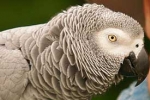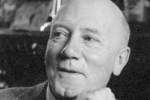Altered states of consciousness that vary from the ordinary waking state, for instance with hypnotism and trance mediumship, have long been associated with paranormal experiences.
General Psi Topics
Describes parapsychological research involving animals, from relatively unsophisticated testing in the 1930s to the well-designed laboratory work of today.
Anomalistics is the study of anomalies unexplained by science, of the kind noted and described by Charles Fort (Forteana), but with a greater emphasis on scientific evaluation.
Anthropologists have long been fascinated by belief in the supernatural, a near universal aspect of human culture. This chronological survey describes many of those who have addressed the topic.
Overview of the history and relative contributions in the field of psi research by labs and individuals in Australia, Japan, China and India
Colloquial term coined by Renée Haynes to refer to the level of tolerance of a discomforting new idea, which is likely to vary from one person to another.
Describes how electroencephalography (EEG) and brain imaging technology are being used to demonstrate psychic functioning and to understand its neural correlates.
Traces the development of interest in paranormal phenomena and parapsychology in Brazil in the past half-century, from the conflicts generated by differing religious perspectives to more recent attempts to carry out serious research in universities.
Cambridge philosopher (1887–1971) whose interests encompassed parapsychology, and who theorized on topics such as precognition and post-mortem survival.
This article describes some recent experimental and theoretical work in China, including successful attempts to train ESP abilities in blind children. It has been contributed by Professor Yi-Fang Chang, a physicist at China’s Yunnan University.











